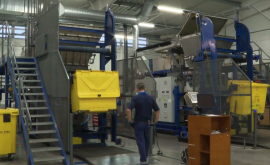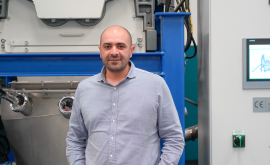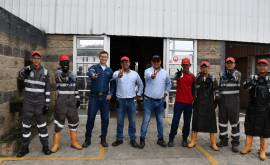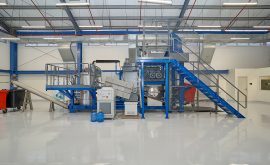Thriving in the medical waste sector
How to launch into infectious medical waste treatment sector?
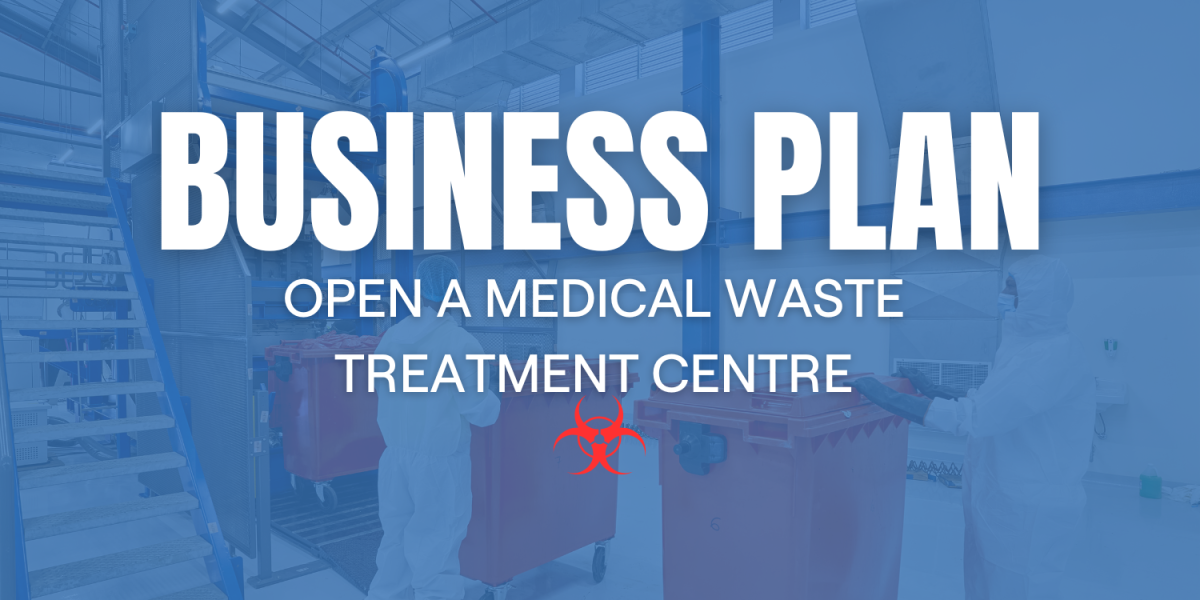
Are you interested in or concerned about the issue of medical or so-called clinical and hospital waste? Do you consider it a business opportunity in your region? Are you considering launching your own business in infectious waste treatment?
Are you currently working on a business plan and assessing the genuine opportunities? Here are some fundamental principles relating to the sector as well as some recommendations to assist you in your thinking and approach.
A global concern with real business opportunities in biomedical waste sector
 Global population is constantly rising and is expected to reach 10 billion inhabitants by 2050. New hospital infrastructures are emerging to care for a growing population.
Global population is constantly rising and is expected to reach 10 billion inhabitants by 2050. New hospital infrastructures are emerging to care for a growing population.
As a result, infectious medical waste is also on the rise.
Correctly and properly processing this waste is a genuine concern. In some regions of the world where there is currently no solution, it is even a priority. The needs are therefore significant, and the business opportunities are real. There is no need to be an expert in this field of activity to successfully start dealing with the treatment of medical waste. Several of our clients started from scratch and are now experiencing real success. Our client DBM’s story in Canada is one of those.
However, a methodical approach and the revision of a few key points are important to successfully complete your project.
Answer the following questions when creating your business plan. We would be delighted to discuss the topic with you to advise you.
Thoroughly analyze your market, its requirements, and the active competitors in the collection and processing of medical waste.
The first step to take before getting started is to thoroughly analyze your local market.
- What is the tonnage in the area you would like to cover?
Do you have any data?
Tip: it is generally estimated at an average of 1 kg per hospital bed. It is a more accessible data point. Aside from large hospitals also consider the market for laboratories, clinics, veterinary practices, etc.
The perfect scenario would be to kick off with a minimum of 200 tons per year to manage.
If you think you will have to manage 1,000 or 2,000 tons per year even before starting, that’s fantastic! - How many hospitals are there?
Are they public or private?
What contracts do they currently have?
Contracts are sometimes stuck for several months or years.
Are there any projects for constructing new hospitals?
What is the price per ton? Worth knowing: how much do hospitals pay per ton of disposed medical waste (ask for a comprehensive and detailed pricing: bins, collection, transport, treatment, disposal). This is a request you can submit to the hospital’s logistics/waste management department. - Have the waste products already been processed?
By whom? And how?
What is the technology used?
Is it a new plant or an old one?
Should they upgrade their equipment?
What actions are your potential competitors taking?
Be sure to analyze them thoroughly. - Are there in the area waste collectors exclusively involved in transport?
Get in touch with them to find out why they would want to change their processing provider and potentially select you as a service provider.
Will you be closer, cheaper, more versatile, more sustainable?
What about you? Do you wish to develop a collection and processing activity or just a processing activity?
Be aware of the local regulations on medical waste
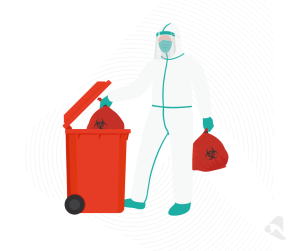 The waste management and processing sector is highly regulated. The disappointing news is that each region and each country have their own rules regarding medical waste. We cannot provide you with a single formula. Yet, we would like it to be clearer and more transparent, for example, at the European level.
The waste management and processing sector is highly regulated. The disappointing news is that each region and each country have their own rules regarding medical waste. We cannot provide you with a single formula. Yet, we would like it to be clearer and more transparent, for example, at the European level.
Some countries rely entirely on incineration. New regulations will need to be established if you bring new disinfection technology like Ecosteryl.
We often advise to “copy” what France has done in terms of law, standards, and controls (Legal text in France).
Are there any existing competitors in your market?
So much the better, the rules have already been established, and they have undoubtedly paved the way and undertook actions ahead of you. Show your appreciation to them; they make your business easier in some way.
Questions you should consider:
- What does local legislations state regarding medical waste treatment?
Are microwave/dry heat treatments permitted? - What is the license required to start as a processing service provider?
- What is the standard to follow?
- Which application do you have to fill in? Who makes the decision?
- What are the subsequent controls?
- How long to get your authorization?
- Do you own a building, or would you like to build one?
What do you need to apply for your permit?
Our installation service can advise you on plans and dimensions.
You will need some space. We can provide you with 2D and 3D sketches.
Be well informed about the authorities’ prerequisites: do they accept your location for processing hazardous waste, or do they designate specific locations? Review these factors before selecting your location.
Complying with the laws can often be a lengthy administrative process at the start. We advise you to keep up with regular updates on upcoming changes.
Selecting a technology to disinfect medical waste: direct incineration or pre-processing?
Focusing on the treatment of medical waste and its disinfection means also exploring the various technologies available on the market.
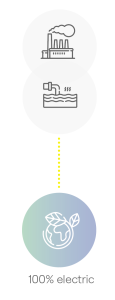 As a reminder, there are currently two major technologies facilitating the processing of infectious medical waste:
As a reminder, there are currently two major technologies facilitating the processing of infectious medical waste:
- Incineration: In this case, medical waste is simply burned, like other common waste. The WHO does not recommend direct incineration
- Decontaminators or machines that disinfect medical waste: We refer to pre-treatment and alternatives to incineration; these machines reduce and disinfect waste through various heating processes. Hazardous waste is transformed into non-hazardous waste, into household waste. Two systems are recognized for disinfecting medical waste:
- Autoclaves: Waste is decontaminated using steam produced from gas, which must then be discarded.
- Dry heat systems: These use electricity to heat up and disinfect waste. These systems do not use water, gas, or chemicals. The machines designed and manufactured by Ecosteryl belong to this category of technology.
Selecting the best technology for processing medical waste
Obviously, you will be told that you should choose Ecosteryl.
Since it is a clean, 100% electric, reliable, robust technology that has been recognized for over 20 years, operating continuously and having its own after-sales service and manufacturing plant.
Here are some points that may help you make your choice between different medical waste treatment technologies:
- What capacity would you like to handle?
- How would you like it to operate?
- Where would you like the machine to be placed? How much space do you have?
- Would you like to potentially move the machine?
- What about the reliability and cleanliness of the machine?
- Is the machine running continuously?
- Is the machine certified?
- Were you able to obtain genuine client references?
- Are the figures mentioned in the sales brochures accurate? Did you manage to confirm them with users, or do you trust what you are being told? Is there a warranty?
- What is waste like at the output? Did you have it analyzed?
- Where is the machine manufactured? Are spare parts easily available?
- Is after-sales support easily accessible and recognized? How long is it available? Is it chargeable?
Should you engage the market with an innovative approach, new technology, or new service, you will most certainly have a real added value and put all the chances on your side to attract your future clients.
If, in addition, the selected technology ensures reliable and continuous treatment of medical waste, your clients will be delighted, and you will feel at ease.
Is there any support available to equip yourself with medical waste disinfection machines?
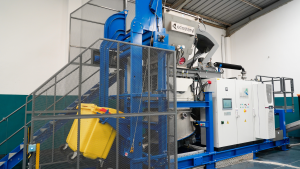 Purchasing one or several machines; developing the necessary infrastructure to install them and treating medical waste represents a significant investment that must be manageable.
Purchasing one or several machines; developing the necessary infrastructure to install them and treating medical waste represents a significant investment that must be manageable.
To avoid bearing the entire cost, you might be able to benefit from financial supports or grants to start your business. Get informed properly to find out the different funding assistance options (banks or international organizations, etc.) depending on your country or area of operation.
The 100% electric Ecosteryl technology allow you to lower your CO2 emissions. Thus, it can compete for numerous funding or grant projects focused on sustainability.
From its inception, Ecosteryl has offered a range of high-performing machines (Ecosteryl 75, Ecosteryl 125, Ecosteryl 250, R-Steryl) tailored to the needs of its users. Operating solely on electricity, they allow for optimal disinfection of medical waste and facilitate downstream sorting, paving the way for a circular economy in the sector. It is a real breakthrough in this field of activity.
What are the emerging trends in the medical waste sector?
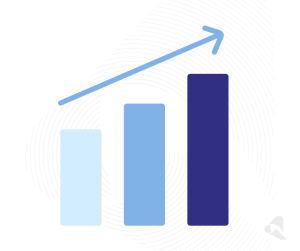 Regulations in this very specific and sensitive sector are gradually evolving to meet new requirements, standards, or international recommendations. Moreover, the main trend in the sector is the promotion of eco-friendly technologies, waste recycling, and the circular economy. The aim is to offer technological alternatives to the incineration of such medical waste. This significant “direction” or trend is widely supported and officially recommended by international organizations such as the World Health Organization, the United Nations, etc.
Regulations in this very specific and sensitive sector are gradually evolving to meet new requirements, standards, or international recommendations. Moreover, the main trend in the sector is the promotion of eco-friendly technologies, waste recycling, and the circular economy. The aim is to offer technological alternatives to the incineration of such medical waste. This significant “direction” or trend is widely supported and officially recommended by international organizations such as the World Health Organization, the United Nations, etc.
Imagine yourself into a relatively near future. It would indeed be regrettable to invest in a technology/machine that could quickly become obsolete or non-compliant with legal regulations.
Consider your project over the medium to long term.
Of course, the purchase cost is an important element in the decision when considering acquiring new equipment. However, it should not be the only factor to consider.
You should consider the medium and long term. Imagine yourself!
– What is your vision of your company in the next 5 to 10 years?
– What ideals are you promoting with this project?
– Which companies are you interested in working with?
– What impression do you want to convey to society?
– Most importantly, thoroughly assess the operational expenses.
– How much will it cost to operate your machine?
– What is your medical waste disinfection machine lifespan?
Get started… now!
Aside from all these guidelines and advice, the biggest challenge in this beautiful adventure is convincing yourself that you can do it. You can!
You can make it happen and become a significant local player in the treatment of infectious medical waste. For your community, for your country, and for the environment.
At Ecosteryl, we have some wonderful stories to share with you in this regard. Customer experiences who, without extensive prior knowledge of the medical waste treatment sector, have with method and determination successfully managed to grow and establish themselves in various regions of the world.
Contact us for an objective opinion on your project.
sales@ecosteryl.com

